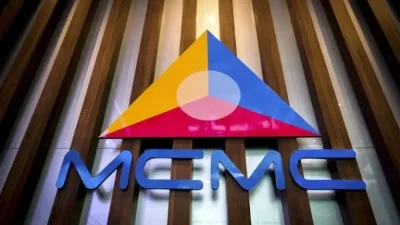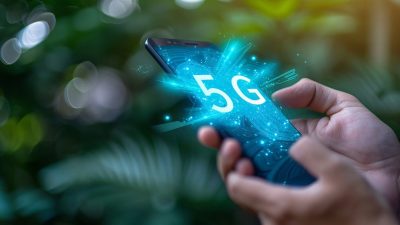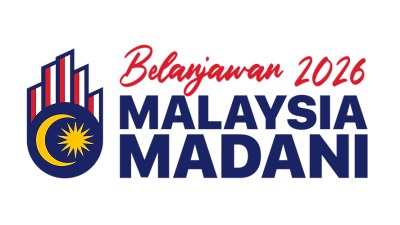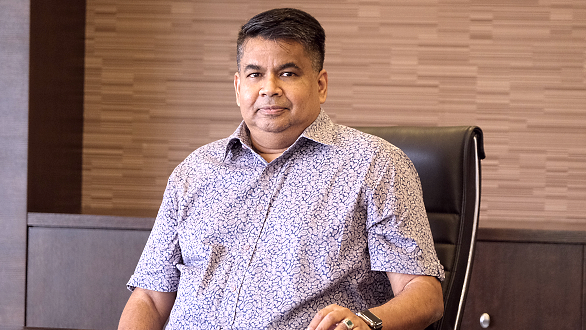
EMIR Research has been calling for a comprehensive reevaluation of Malaysia’s 5G rollout in numerous and continuous publications because getting the model and implementation correct for the benefit of all is paramount.
Malaysia must consider all options to ensure its long-term interests and gains, far outweigh shorter-term benefits (if at all), even if it means reevaluating contracts and reversing policies that may upset certain vested interest groups.
Blindly defending policy, even if it is detrimental to the nation, puts into question not only the intellectual but also the moral precepts of the people involved.
The wrong model
The decision to pursue a Single Wholesale Network (SWN) model, specifically the Multi-Operator Core Network (MOCN) where mobile network operators (MNOs or telcos) share all the infrastructure except their core networks, is not a winning formula globally (see “Malaysian 5G Rollout — Topsy Turvy Innovation” dated March 24, 2023).
The SWN model has been shown as a failed model globally, save for one or two extreme or exceptional cases, such as New Zealand and Brunei, that cannot be extrapolated to Malaysia or anywhere else in the world due to the special focus (rural area with extensive fiber backhaul) and small size of the country and population.
It is good to think that one can defy the odds and be a unique example in the world, but there is such a thing as delusion, and there is a fine line between bravery and obtuseness. Unfortunately, evidence points to the latter.
In particular, the SWN/MOCN removes competition at the infrastructure level, which is crucial in driving innovation, impacting network service quality and affordability. We explained below why comparing this with commodity-type monopoly is a flawed argument.
Decisions made without being subject to public and expert scrutiny are pointless. As far as DNB is concerned, the only explanation and attempts to inform the public was post-decision-making which seemed to come from advertorials in local news dailies (sometimes self-owned) and op-eds from hired foreign consultants to speak on behalf of those under the uneasy spotlight.
If it were such a clear-cut case, DNB and their rollout model would not have garnered significant criticisms locally and even from world-renowned telecom industry experts such as the Global System for Mobile Communications Association (GSMA).
See “Malaysian 5G rollout: Bending the truth like no other” dated May 2, 2023, where EMIR Research highlighted GSMA’s Public Policy Position from May 2021 where it is clear that DNB and its deployment model fits none of the GSMA’s best principles.
There have been various unanswered questions (see “Malaysian 5G Rollout “Unanswerable” Questions” dated February 21, 2022), such as actual demand estimates, needs analysis in rural areas, and other parameters which are crucial to measure the credibility of the so-called “supply-driven” model and how these would supposedly generate demands and spillover economic gains it envisions.
We are not even clear on DNB’s definition of coverage of populated area (CoPA), been said as one of the key performance indicators. But whatever the definition is, GSMA’s Asia Pacific head Julian Gorman reportedly and correctly pointed out that the priority should be adoption, innovation, including the infrastructure, and transformative use cases (which require infrastructure competition) for the industry as the true success yardstick of 5G — not CoPA.
The wrong entity
DNB’s role as a sort of spectrum monopoly middleman and the SWN approach deployed by DNB is not the same as regulated monopolies in water and electricity utilities, although painting DNB’s business model as such i.e., as a neutral arbiter of the people providing essential services to all, has a nice people-centric feeling to it.
If only that were the reality. Unfortunately, water and electricity are not comparable to 5G in terms of the pace of innovation and rapid evolution of technology.
Water and electricity face little to no end-user innovation, and unlike water and energy, the spectrum cannot simply be regenerated. It is finite.
Also, unlike 5G, water and electricity have daily demands from people and businesses in urban and rural areas. Therefore, there is no question of the need for nationwide deployment.
Furthermore, unlike genuine utility providers, DNB does not have sufficient internal capabilities to develop the network. It merely contracts this out to other parties, which locks Malaysia out of access to the pool of rapid global innovation in the telecommunications industry for a decade or more, at the minimum.
More recently we saw DNB trying to fix this through equity participation of telcos in DNB. This is also complicated and unnecessary.
Wholesalers and retailers under one roof would be tricky if not conflicting. It might promote anti-competitive behavior, which is against The Communications and Multimedia Act 1998 (CMA) such as price fixing, market sharing and other activities.
As mentioned by MCMC’s Guideline of Communications Dominance, one of the factors the Commission would assess to determine whether functional levels of the supply chain are separable or subject to constraint, is “whether demand from one relevant level of the supply chain affects the demand at another level.
For example, if competition at the retail level constrains the prices that a wholesaler could profitably charge, this may suggest that the retail level and wholesale level should form part of the same market.”
Needless to say, business interests may clash with the supposed objectives of a government-owned DNB.
Joint DNB ownership appears to be a conflict even among DNB’s proponents when even staunch DNB proponent, Tong Kooi Ong (owner of The Edge) doesn’t want DNB to be handed to telcos in his recent article (see “My Say: Do not ‘gift’ DNB to the telcos, please” dated May 2, 2023).
One interesting note is when Tong claims that private banks are financing DNB without a government guarantee and admits it is fully government-owned.
What happens when financial institutions are no longer funding DNB? For all we know, DNB may be facing financial challenges as we speak.
As such, they must look elsewhere for capital such as raising sukuk/bonds against projected (assumed) future cash flows, which will have to be backed by government guarantees for it to be bought by investors. Remember 1MDB!
Note that this is excessive monetization through the exclusive use of spectrum by DNB, which was never needed in the first place, once again, as it exposes the government (the people) against potential future losses which could easily be in the billions and goes totally against the best global practices of efficient spectrum use to benefit end customers and industries.
Spectrum could have just been auctioned by existing regulators such as MCMC without the need for DNB. Telcos can do their business, but here we are trying to save DNB from its demise because it had prematurely signed a bad deal and is now parroting the financial and legal threats laid to it.
The wrong focus
The current DNB model focuses only on the last mile service delivery, which WILL NOT resolve internet problems in rural areas.
And this is where the accusation of telcos by DNB’s proponents as being unable to deliver quality affordable internet services in rural areas is pointless as this is due to Malaysia’s longstanding problem of lack of national fiber backhaul, which the previous administration, obviously, were unwilling to solve by defending, AGAIN, the existing monopolies (refer to “Malaysian 5G Rollout: Digital Divide Whitewash” dated February 27, 2023, for details)!
This is where we should be speaking about the need for a government-owned monopoly for dark fiber as a neutral entity — an entity not involved in the retail business for the fiber. This is where we can appropriately equate it to a necessary regulated utility monopoly.
After all, the internet is like water which will only sprinkle wherever you lay the dark fiber! Speed to spend by DNB with no outcome and impact to the nation.
As reported by GSMA, Malaysia’s 5G adoption rate is behind its neighbors at only 1%, as of December 31 2022, despite more than 50% 5G CoPA, ending January 2023. Not a great outlook for the “supply-driven” model!
This early problematic symptom is a sign of a timely and wise decision to halt the “speed to spend” and an excellent opportunity to recalibrate the model towards delivering genuine outcomes and impacts for the people and the nation!
Fair enough, recently, GSMA has reiterated calls for Malaysia to enable 5G infrastructure competition by allowing multiple 5G networks by telcos as the sure pathway to efficient and effective 5G rollout supported by the data, science, and economics, as manifested in the bulk of global experience thus far!
The wrong excuse
Proponents have resorted to blaming telcos for what they claim as poor 4G implementation in terms of timeline, quality and costs to customers using data points without verifiable sources. Tong’s most recent article repeated this accusation, again, without verifiable sources.
Here, proponents conveniently ignore publicly available and verifiable data and facts which EMIR Research had recently used to refute their claims in “Malaysian 5G rollout: Bending the truth like no other” dated May 2, 2023.
Additionally, it was reported in the Financial Times article “EU and US warn Malaysia of ‘national security’ risk in Huawei’s bid for 5G role” dated May 2, 2023, that US and EU representatives warned Malaysia over risks of foreign investment if the country’s telecommunications infrastructure is opened up to other players (such as Huawei) —a natural global competitor to Ericsson who is the appointed 5G Network Equipment Provider for the Malaysian SWN model.
It is hypocritical of the US and EU to speak of contractual obligations and the adherence to agreements, trustworthiness, fairness, utmost justice and transparency and “stability” of policies as if they are speaking from a place of complete stability, purity and of moral high ground.
We can write a history book on how these nations are not walking the talk and violating legally written documents and / or treaties for decades.
EMIR Research would like to highlight that in their land, EU enacts regulations strongly against what they preach in Malaysia!
The Body of European Regulators for Electronic Communications (BEREC), as an organization representing the consumers’ interests, maintains a unanimously negative view of MOCN (DNB’s exact model) due to its potency to substantially reduce the differentiation capacity of the sharing parties in terms of service quality (refer to “BEREC Common Position on Mobile Infrastructure Sharing” — common position and framework for national regulatory authorities).
Among the active forms of sharing, BEREC urges national regulatory authorities to very carefully assess spectrum pooling (MOCN) and national roaming on a case-by-case basis restricting its application to areas with very low population density where infrastructure-based competition is infeasible (which DNB is not doing).
Typical double standards
The changing geopolitical landscape and tectonic shifts in power blocs also demand that Malaysia remain neutral in its technology preferences.
Though, the “threats” of FDIs and other investments by Malaysia’s partners are noted, Malaysia, as a sovereign nation, must do what is best for Malaysia in the long run — not saying no to Ericsson but opening it up to others to promote infrastructure competition, remove unnecessary spectrum monopoly, recalibrate a proven failed model and remove the middleman for spectrum allocation, as we already have MCMC for regulatory purposes.
Furthermore, if existing players in the 5G rollout, such as Ericsson, have committed to investments and developmental projects in Malaysia only if the existing model (monopoly model), which they vehemently oppose in their own land, is maintained, then this sounds as a PURE NEO-COLONIALISM.
They want us to remain only users of their technology and through their typically low value-added FDIs, use our nation as cheap labor on either one end of the supply chain (raw materials) or another (simple assembly of the finished goods)!
They must be reminded that Malaysia attained its sovereign nation status in August 31, 1957, 66 years ago!
The current administration, taking over the wheels of a country that has struggled to get out of the middle-income trap and reach a high-income, innovative nation, must think strategically and critically so that Malaysia does not repeat the same mistake that has plagued our nation over many decades.
Who is to say that deals with other 5G providers won’t be sweetened by similar or even better FDI initiatives for Malaysia?
If anything, competition would drive providers to add more icing on the cake. A holy place is never empty!
The wrong excuse, again
In addition to financial and legal issues, the Financial Times article also reported that Brian McFeeters, the US ambassador to Malaysia, warned of “national security risks” unless Malaysia stuck with its original plan for 5G deployment.
However, does not simple common sense suggest being at the “mercy” of one technology supplier be a far greater security risk?
Remember the false flag operation in Iraq where the US had a national security threat via the non-existent weapons of mass destruction (WMDA)?
The US banned Huawei from its 5G networks back in 2019, which is no surprise as they have tried to lobby (pressure) other nations to do the same.
But it’s interesting to note that the EU representative to Malaysia focused its criticism (in the FT article) on the contracts instead of national security issues.
This is likely because Huawei is also a 4G and 5G vendor in many EU nations (Figure 1). How hypocritical they are to “urge” Malaysia to do otherwise.
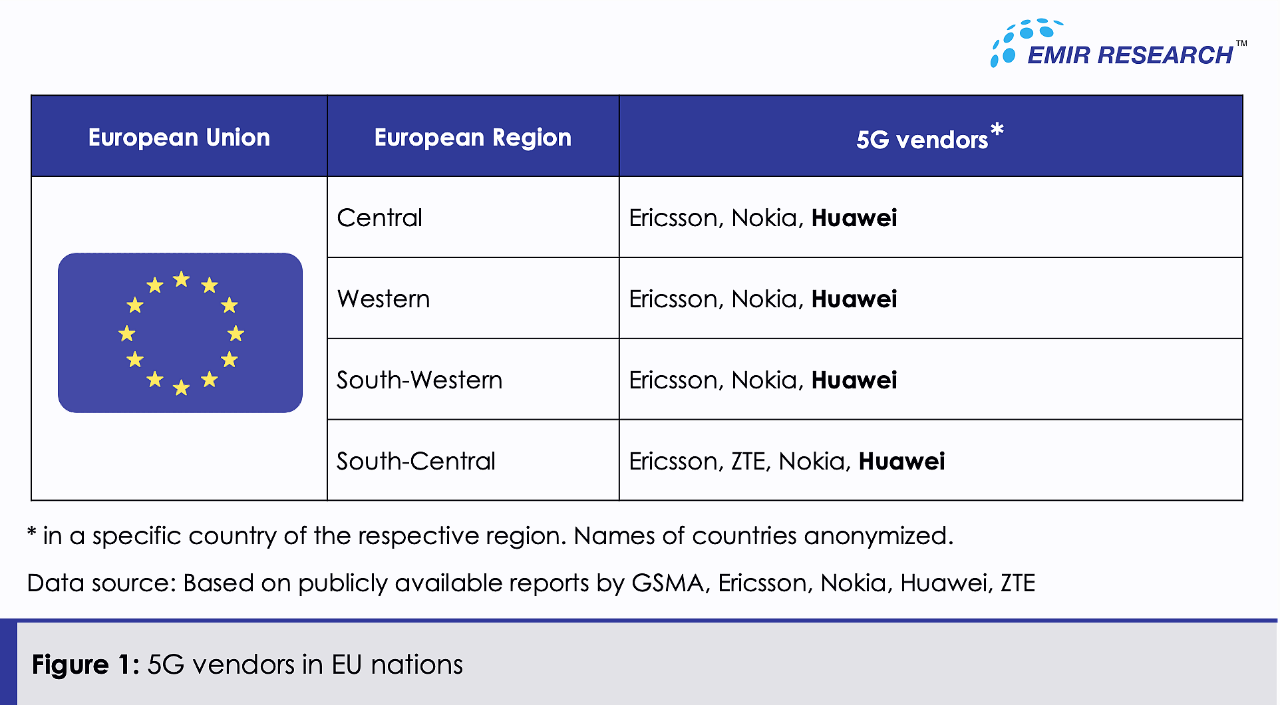
In addition, even if we study other countries closer to Malaysia, Huawei have also been deployed — Singapore, Thailand and The Philippines.
Even in the Samsung home turf, South Korea, LG U+ uses Huawei. All these countries including the EU countries surely must have considered their national security risks.
As mentioned in “Independent Oversight on DNB and 5G is Necessary” dated March 24, 2022, the International Consortium of Investigative Journalists (ICIJ) highlighted how both Ericsson and Huawei have questionable dealings.
The security issue goes both ways, and Malaysia’s best bet is to not put all its eggs into one basket, be technology neutral and diversify its ecosystem. It makes sense economically and in terms of national security and infrastructure resiliency and redundancy.
There is no reason to be beholden to one private entity, one core network, one government spectrum middleman and the pressures of one geopolitical or economic bloc.
This will only stall innovation, beget complacency and increase the risk of corruption, over-dependence and overreliance, with diminished flexibility for change.
As such, EMIR Research welcomes the decision to pursue a dual wholesale network (DWN) as announced by Communications and Digital Minister Fahmi Fadzil on May 3, 2023.
This is generally a step in the right direction, but the devil is in the details (or the lack thereof) and EMIR Research will provide a commentary on the announcement in a separate article.
(Dr. Rais Hussin is the president and chief executive officer of EMIR Research, a think tank focused on strategic policy recommendations based on rigorous research.)
ADVERTISEMENT
ADVERTISEMENT






